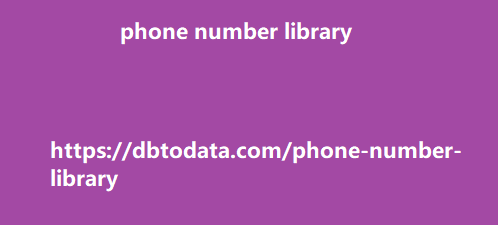Why Is Tracking Keyword Rankings Important? If you need some more persuading to start learning how to track keyword rankings, you should know that it helps you: Manage your most important, value-driving keywords. Track ranking developments, and identify how your keywords perform through historical data. Set keyword ranking goals for your website. Find new keyword opportunities for your website. Identify which keywords (and associated pages) need to be further optimized. Reveal sudden drops in ranking, which can point to issues that need to be addressed. In short, keyword tracking provides valuable data and insights into the way your website ranks for certain keywords. This then helps you adjust and improve your SEO strategies.
Webmaster’s Note: This post is part of our
advanced guides to Keyword Research and Optimization, and Content Strategy, where I cover everything you need to know about picking the right keywords for your website, and ranking for them in Google. I also cover strategies for winning SERP features, building topical authority, using long-tail keywords, and more in this series. What Causes Changes in Keyword Rankings? There are a few things that could trigger changes in your website’s keyword rankings–some in your control, some out of it. You or other websites publish new content targeting that keyword. You gain or lose backlinks from other websites. You make significant changes to your pages’ title tags, meta descriptions, headings, et cetera.
You add or remove content to your existing
pages. Google updates its algorithms–we just recently had an August 2023 Broad Core Update and a September 2023 Helpful Content Update. The cause for your rankings improving or dropping can be one or a combination of things in this list. That’s why consistent tracking is important. When you can pinpoint when your rankings moved, you can match it to whatever you did on your website on the same day (or week). Then you can determine if these changes should be kept, or if it needs to be reverted. If you think you’re dealing with the after-effects of the Broad Core Update, here’s how to recover your rankings, as well as an SEO checklist for optimizing after a core update you can use.
How to Track Keyword Rankings Keyword rank
tracking is a long, never-ending process. Here’s a step-by-step guide on the process: Keyword Research To start, it’s important to remember that your focus should not merely be on selecting relevant keywords but on understanding your audience’s search behavior. This allows you to choose keywords that align with what you offer and your audience’s search intent, subsequently leading to better results. Begin by understanding your target audience, their interests, search behavior, and language. Gaining these insights forms a foundation that allows you to select keywords that mirror their search patterns. Then, use keyword research tools like Google Trends, Keyword Generator, or SEMrush. These tools offer vital data on the popularity and competitiveness of potential keywords within your market area.
Webmaster’s Note: If you’re just about to start on your
SEO journey, I also have a guide on cayman islands phone number library how to do keyword research for new websites. Implement Keywords in Your Content The next move is to strategically and naturally incorporate your chosen keywords within your content. They need to be in your titles, subheadings, URLs, meta descriptions, and the body of your content for the best results. Use a Keyword Ranking Tracking Tool With keywords in place, the next step is to use keyword ranking tracking tools like SERanking or Google Search Console. These tools keep tabs on how your chosen keywords are performing in search engine results, day by day. This data will help you adapt and adjust your SEO strategy when needed.
Analyze Keyword Performance Regularly Keep in
mind that keyword tracking isn’t a one-and-done process. It’s an ongoing cycle that requires consistent attention. Regularly review the tracking data to stay on top of your keywords’ ranking status and to observe changes over time. Use these insights to adjust your keywords as necessary. Depending on their performance, you may need to use different variations, remove those that are underperforming, or incorporate new ones that are trending in your industry. Best Tools for Tracking Keyword Ranking There are a few tools that are effective when it comes to keyword tracking, for seasoned SEO experts and beginners alike. Based on my experience, SEMrush, Google Search Console, and SE Ranking are the best tools I have used for this purpose.
SE Ranking SE Ranking SEO keyword tracking tool
SE Ranking is widely used fostering connection and collaboration for keyword rank tracking. This versatile tool also offers a full SEO suite, including website audits, backlink monitoring, and competitor research, among other features. Pros: Accurate rank tracking, comprehensive SEO analysis, user-friendly, affordable. Cons: Some reports can be slow, you may need to update the rankings from time to time. SEMrush SEMRush SEO keyword tracking tool This comprehensive digital marketing tool helps with various aspects related to SEO, including keyword tracking. SEMrush is popular for its ability to perform keyword research, competitor analysis, and run SEO audits on your blog. Pros: Comprehensive SEO features, excellent reporting functions. Cons: Quite complex for beginners, higher pricing.
Google Search Console Google Search Console
SEO keyword tracking tool and china phone numbers webmaster’s tool A free tool offered by Google, the Search Console provides invaluable insights into what search queries your website is showing up for. It is essential for identifying issues and opportunities for website optimizations. Pros: Free, provides direct data from Google, integrates with other Google products Cons: May be too technical for beginners. The tool that’s best for you will depend on your SEO needs, budget, and familiarity level with this kind of tool. SEMrush, Google Search Console, and SE Ranking each offer valuable features and data to track your keyword rankings effectively and power your successful keyword tracking relies on following best practices and techniques.

